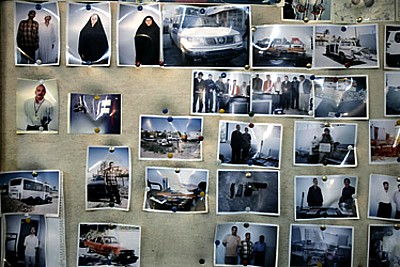The Iraqis' Stories: The Disappeared


It can happen in seconds.
Waddah al-Anbari's ordeal began on an afternoon in Baghdad early this year while he was out buying a new cell phone. The neighborhood seemed safe; Waddah didn't bother to lock his car door. He was about to cross a narrow alley when a car screeched up, blocking his way. Two men got out, thrust AK-47s into his ribs and pushed him into the floor behind the front seat. Climbing in the backseat, the men pinned him down with their feet and beat him in the torso with the butts of their guns. When he tried to speak, he got a sharp jab in the ribs. His captors emptied his pockets and took his cheap wristwatch and his belt and shoes. As the car sped away, one man put a hood over Waddah's head and, using a plastic tie, bound his wrists behind his back. All that happened in a few moments, and Waddah says he could only think, "This is a mistake--they think I'm somebody else." But it wasn't a mistake. He was being kidnapped.
As if the atrocities committed by terrorists and sectarian death squads in Iraq weren't bad enough, kidnapping has become one of the country's most common forms of crime since the fall of Saddam Hussein. U.S. officials say that up to 40 people are kidnapped every day, a phenomenon highlighted last week when a U.S. soldier in Baghdad went missing, an apparent abduction victim. With ransoms ranging from a few thousand dollars to more than a million and with the police often unwilling or unable to even register such cases, officials say kidnapping has become an increasingly lucrative business. It helps the kidnappers that their criminal activity is often confused with the routine hostage taking by both sides in the Shi'ite-Sunni civil war. "Kidnapping for ransom is an industry," says Dan O'Shea, former coordinator of the U.S. embassy's Hostage Working Group. "It is governed by the profit motive, not religion or race or politics."
Read the rest at Time

<< Home